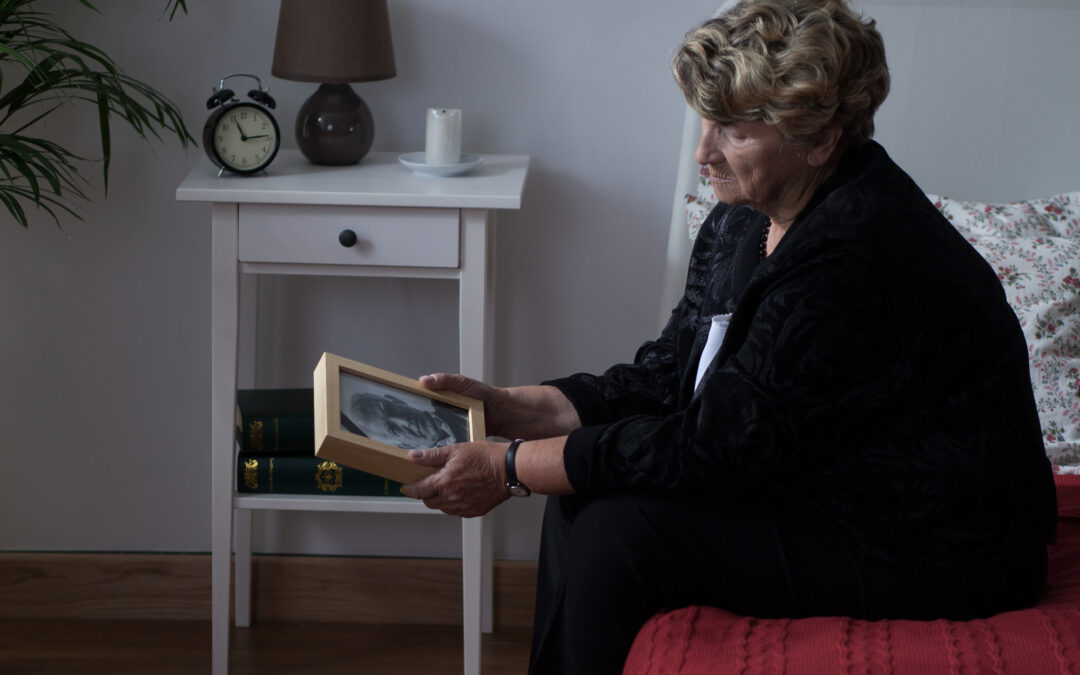Mourning the Loss of Your Spouse
Dealing with the Death of a Wife or Husband
The death of anyone close to you is always difficult, but nothing compares with the loss of a spouse—your life partner. A wide range of emotions can surface, from sadness to anger to guilt. It’s not uncommon to experience sleeping difficulties, a loss of appetite and an unwillingness to make decisions. You’ll find plenty of people willing to tell you exactly what you need to do to effectively deal with your loss. They usually mean well, but are often not that much help.
Finding Your Way Forward after Your Spouse Dies
So what is the best way to get through and past the death of a husband or wife? Unfortunately, there is no one way that works for everyone. The experiences you’ve had with your spouse are unique—it’s not a “one size fits all,” so much of what will actually bring you comfort and peace in the long run will fit only for you, and you may have to try different things and go through a variety of experiences before you get there. The one certainty, though, is that you won’t effectively work through your loss by trying to ignore it and just plowing forward. But you don’t have to do it all alone, either.
Support Systems Can Be an Immense Help
With time, you’ll be able to manage your grief by yourself. In the immediate aftermath of your spouse’s death, that may be virtually impossible. That’s the time to look to family and friends for support. Though their loss may not be exactly the same as yours, they are feeling it, too. Take time to be with them, to share stories about your spouse, to relive cherished memories and to reflect on the joys you had.
In addition, there may be support groups specifically comprised of widows and widowers, people who experienced an event very similar to yours. You may be able to find one through your synagogue, through a medical professional or from your funeral home director. If hospice was involved in the final days of your spouse’s life, they will likely have resources to help you with bereavement support.
Don’t Be Afraid to Seek Professional Counseling
There’s absolutely nothing wrong with consulting with mental health professionals after the death of a spouse. A grief counselor or therapist can help you come to terms with your loss and see your life in a different and positive way.
Take Care of Yourself
A common side-effect of the death of a spouse is stress, and stress has long been associated with higher rates of illness. In the days, weeks and months following your spouse’s death, pay close attention to basic health issues:
- Try to get regular exercise, even if it’s just going for a short walk every day or two
- Prepare and eat healthy meals, and minimize the use of alcohol
- Schedule a visit with your doctor
- Maintain your prior religious practices—your faith community can be a tremendous source of comfort, and can have a markedly positive impact on your health and progress through your grief
Gutterman’s—Compassionate and Comprehensive Service to the Jewish Community
At Gutterman’s, we bring more than 125 years of experience to members of the Jewish communities in New York and Florida seeking funeral and burial services. We have a thorough knowledge of the different traditions within the Jewish faith, and can provide guidance regarding all matters related to funeral and/or burial services, from the order of service to arrangements for sitting Shiva, from the selection of a monument to the creation of a Yahrzeit calendar or language of an obituary.
At Gutterman’s, we know the importance of the grieving process, and we understand how difficult that has been over the last fifteen months, as we’ve faced the challenges presented by COVID-19. Because of our strong commitment to the health of our customers and our employees, we’ve worked hard to identify ways that we can help you pay your respects to loved ones, honor Jewish customs and not put yourself and others at unnecessary risk.
As we approach widespread vaccination and a return to a reestablished sense of community, we remain resolute in our approach—we will strive to be there to help you honor your loved ones, as well as your faith, while simultaneously working to protect you and others from unreasonable health risks. For those reason, we continue to have special health and safety procedures in place. To learn the current safety guidelines in place at our chapels, go to our website.
For assistance in your time of loss or grief, or for answers to any questions about the Jewish funeral and burial services we offer, contact us online or call us at one of the numbers listed below. We will take your call 24 hours a day, 7 days a week.

